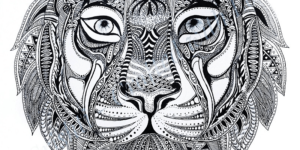
In the midst of India’s evolving, a quiet revolution is unfolding that is reshaping the way we move, connect, and experience our cities. At the heart of this transformation is all-in-one mobility Apps – digital companions that transcend the conventional concept of transportation, offering a tapestry of choices and an unparalleled level of convenience.
These all-in-one mobility apps have emerged as the maestros orchestrating this symphony of movement. They have taken the complexity of urban travel and distilled it into a single, user-friendly interface that empowers individuals to navigate the urban jungle with ease.
The app puts together different ways to travel – like calling a ride, using public buses, renting a bike, or even walking. This variety lets users pick what suits them best, based on likes and how they feel on that particular day.
What sets these apps apart is their ability to foster an emotional connection with users. Beyond offering a means to get from point A to point B, they create an immersive and personalized journey that resonates on a deeper level. These apps in essence elevate commutes from a being yet another routine chore.
One of the most compelling aspects of all-in-one mobility apps is their capacity to transcend socio-economic divisions and foster a sense of unity in the diverse tapestry of Indian society. This phenomenon goes beyond just practicality; it evokes a sense of connectedness and shared humanity, reminding us that the journey itself can be as meaningful as the destination.
That being said, the rise of all-in-one mobility apps is not without its challenges. Adapting to the unique dynamics of India’s urban travel landscape requires a delicate balance of technology, infrastructure, and empathy. Each city has its own rhythm, its own flow, and its own challenges. Developing an app that can seamlessly navigate this complexity demands not only sophisticated algorithms but also a deep understanding of the cultural and logistical nuances that define each urban center. It requires a dedication to continuous innovation and a commitment to enhancing the user experience at every turn.
As these apps continue to shape the urban travel landscape, they are also playing a pivotal role in addressing some of India’s most pressing challenges. The issue of pollution and environmental sustainability looms large, and all-in-one mobility apps are stepping up to offer eco-friendly options that encourage individuals to make choices that reduce their carbon footprint. From suggesting shared rides to promoting cycling and walking routes, these apps are not just transforming how we move; they are contributing to the larger narrative of building greener and more livable cities.
Furthermore, the emotional resonance between users and these apps extends to the realm of time management. Time is an invaluable resource, and all-in-one mobility apps are empowering individuals to make the most of it. With features like real-time updates, predictive analysis, and optimized routes, users are reclaiming moments that would have otherwise been lost in transit. This newfound sense of control over time evokes a feeling of empowerment and gratitude, enriching the emotional tapestry of urban life.
The rise of all-in-one mobility apps in India signifies more than a technological advancement; it represents a paradigm shift in how we perceive and navigate our cities. As India continues to evolve and embrace the digital age, these apps are charting a path towards a future where urban travel goes beyond the ride, becoming an integral part of our shared human experience.
Hiranmay handles the overall Business Operations & Strategy, as well as Investment & Investor Relations for Tummoc.
Edited by Akanksha Sarma
(Disclaimer: The views and opinions expressed in this article are those of the author and do not necessarily reflect the views of YourStory.)










